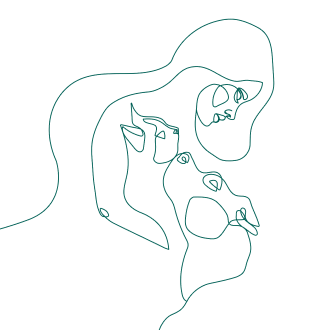About Cats
Cat not eating: reasons and solutions
Dec 20, 2021
- Reasons for lack of appetite
- Psychological reasons
- Physiological causes
- What to do if your cat is not eating

Reasons for lack of appetite
There are many reasons why a cat won’t eat. They can be physiological and psychological. If your pet does not want to eat, this does not necessarily signal serious problems with its health, but you do need to be on the alert. Possible causes for poor appetite can include:
- Pregnancy and the period after the birth of kittens
- Recovery after sterilization
- Hormonal changes
- Stress
- Parasites
- Infections
- Poisoning
- External factors not related to the physiology of the animal
Pets often refuse to eat when the weather is hot and their body temperature regulation is disturbed. Another possible factor could be that your cat does not like eating from a poorly washed bowl.
Psychological reasons
Cats are sensitive to a variety of stressful situations. Therefore, psychological factors can be the reason why your cat is not eating.
Change in surroundings
The behavior of your pet can be provoked not only by more serious problems, but also by those that may seem quite petty to many pet owners:
- Repairs
- Rearrangement of furniture
- Moving into a new house
Change in environment
New people appearing in the life of a cat can have a stressful effect on your cat, and is similar to the effect that the long absence of the owner can have. Cats do not immediately connect with someone they do not know, and this is normal. It takes time to build communication. The following reasons for loss of appetite in a cat are directly related to people:
- Strangers in the house
- Long absence of the owner
- Illness or death of the owner
- Quarrels in the house
In such situations, your cat will refuse to eat. They may experience lethargy, apathy. Remember though that these symptoms can also often indicate the onset of a disease. Therefore, it is important to quickly figure out and understand why your cat is not eating. If the loss of appetite is not related to the loss of the owner or the development of a disease, then your pet will begin to behave as before after a few days. Otherwise, you should see the vet.
Physiological causes
If a cat is not eating, experienced owners are right to associate this with the onset of a disease. Often this behavior is caused by a disease, poisoning, or parasite infestation. Animals can have smell or touch disorders, diseases of the oral cavity.
Diseases of a cat’s internal organs
The associated symptoms are pain, nausea, or a combination of several symptoms. So, there is nothing strange about your pet beginning to refuse food. Here are a number of reasons why a cat may not eat:
- Diseases of the gastrointestinal tract
- Diabetes
- Urolithiasis
- Trauma to internal organs
- Renal failure
- Malignant neoplasms
There will be several different symptoms at once in case of illness, not only one. Therefore, it is important to monitor the condition of your pet and immediately contact the vet if you are concerned.
Diseases of the oral cavity
If your cat does not have all of its teeth and has signs of decay, it is not easy to chew food. When tartar appears, the gums become inflamed and sore.
A cat can have stomatitis characterized by inflammation of the oral mucosas. The disease develops after injury or reproduction of pathogenic microflora.
Therefore, it is extremely important to monitor the health of your pet's mouth. Veterinary clinics provide dental services not just for marketing purposes, but as a method to prevent more serious health problems. Your cat should undergo periodical checks for tartar and dental cleanings. Basically, caring for your pet's teeth at home should be a daily routine.
Cat not eating after sterilization
Sterilization is one of the possible reasons why your cat is not eating. It is known that the swallowing reflex may be impaired for a while after anesthesia. So, it is quite normal for a pet not to eat for eight or even twelve hours following surgery with anesthesia. Just offer food and water, but do not force your cat to eat.
What to do if your cat is not eating
Pet owners who find themselves in this situation are eager to have a pragmatic answer to the question of what to do if their cat is not eating. Experienced experts advise to correlate your pet's starvation period and age, and health condition. It is also important to take into account all the existing symptoms and situations that could be contributing to your pet’s refusal to eat. To detect hidden signs of disease, you need to take the temperature, check the reaction of the pupils to light and examine the oral mucosas.
When adults’ and children’s favorite pet stops eating, try to pay more attention to your pet and find out what the problem is. If you cannot find any obvious, and health-irrelevant cause, see the vet as soon as possible.
Sometimes, a lack of appetite in your cat can be caused by the wrong food. Make sure that the expiration date has not passed, and the package was not damaged. If your cat is under one year old, you should use appropriate dry food for kittens. The granules will be suitable for your pet and always easily chewed.
Perhaps, your cat simply does not like the food you are offering, and it makes sense to reconsider the diet. Remember that switching to another food should be done gradually, according to the instruction indicated on the package.
Especially demanding cats will love the CLUB 4 PAWS premium “Selection” line. These are selected slices of meat in a delicate sauce.




